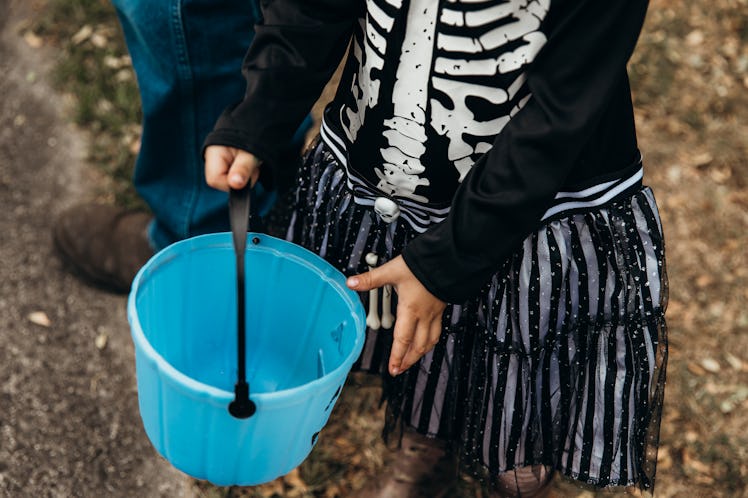Why Halloween Should Always Be the Last Saturday Of October
It makes sense on so many levels.

Every year Halloween is on a different day of the week. Often on a school night. It’s not a national holiday. The stock market won’t close. The banks, schools, and post offices will remain open. And, yet, parents will have to rush home from work to dress kids in costumes, fill bowls with candy and head out into a spook-filled night. But if Halloween became a national holiday, celebrated on the last Saturday of October, kids and parents alike could take the time to actually celebrate.
For several years, parents have been advocating to make Halloween more like Easter. Back in 2018, several petitions on Change.org argued that the date of October 31 is terrible for families for all sorts of logistical reasons. Having Halloween on a school night is bad for bedtimes, and in some cases, creates safety issues.
Halloween should be given the same due as Christmas, Easter, and Thanksgiving. It’s no less important. And not just for scheduling reasons. In addition to making the lives of families a lot easier, there’s a good philosophical reason for making Halloween a real holiday: Americans need their own version of the Day of the Dead. Most Halloween traditions stem from celebrations focused on death, from Celtic rituals to the Day of the Dead celebrations in Mexico.
How much better would it be for kids to actually have meaning behind their traditions? The longevity of Halloween proves that for kids, death doesn’t have to be depressing. Let’s give families a break, and honor some of these deeper ideas, too. Make Halloween the last Saturday of October, and make it a Federal holiday! The treats are fine, but the tricks that this holiday plays on parents have to end.
This article was originally published on